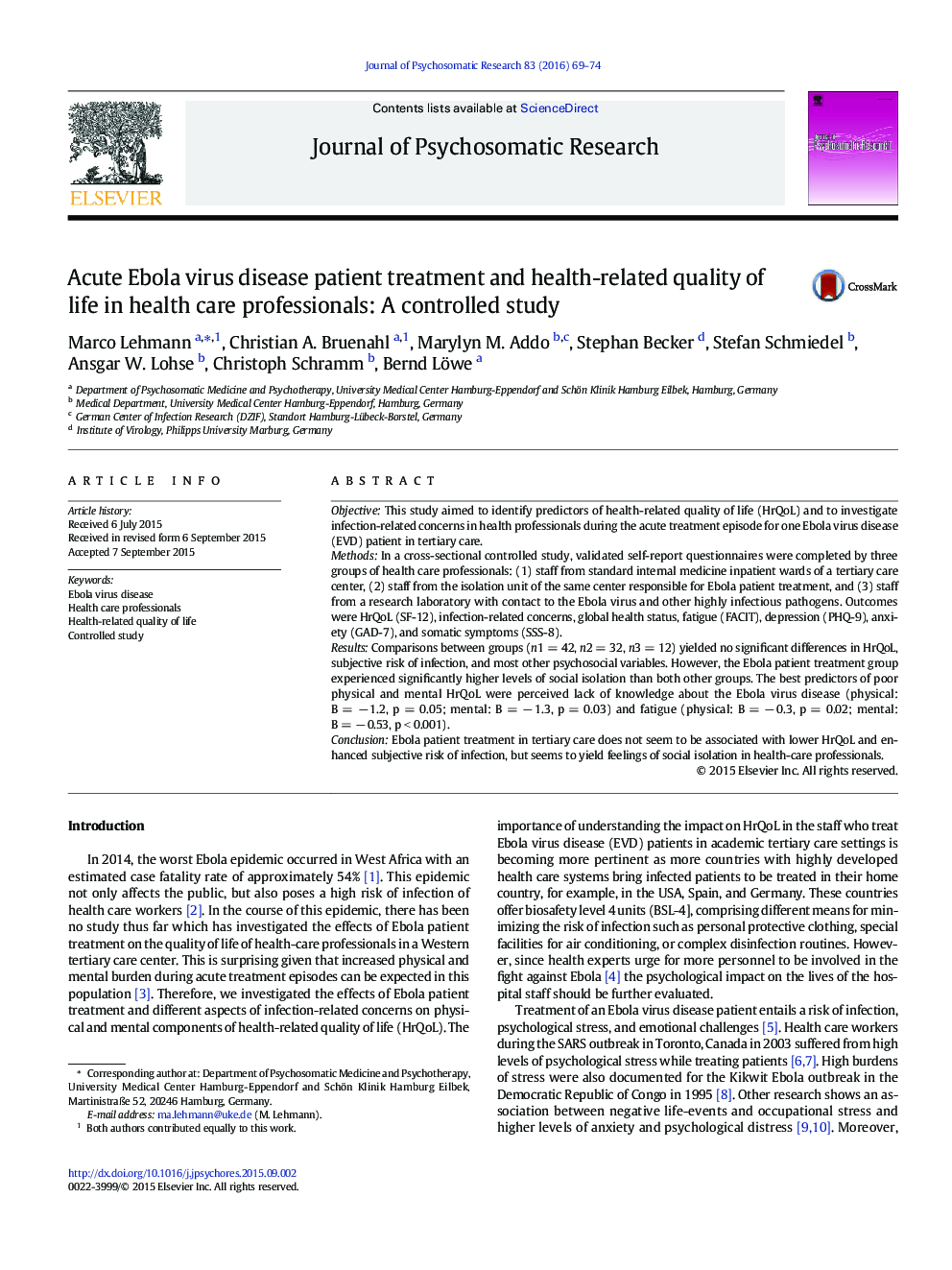| کد مقاله | کد نشریه | سال انتشار | مقاله انگلیسی | نسخه تمام متن |
|---|---|---|---|---|
| 949163 | 1475912 | 2016 | 6 صفحه PDF | دانلود رایگان |
• Health professionals' HrQoL in Ebola virus disease patient care in a German hospital.
• Controlled study independently assesses effects of patient and pathogen contact.
• Lack of knowledge about virus disease and fatigue predict HrQoL.
ObjectiveThis study aimed to identify predictors of health-related quality of life (HrQoL) and to investigate infection-related concerns in health professionals during the acute treatment episode for one Ebola virus disease (EVD) patient in tertiary care.MethodsIn a cross-sectional controlled study, validated self-report questionnaires were completed by three groups of health care professionals: (1) staff from standard internal medicine inpatient wards of a tertiary care center, (2) staff from the isolation unit of the same center responsible for Ebola patient treatment, and (3) staff from a research laboratory with contact to the Ebola virus and other highly infectious pathogens. Outcomes were HrQoL (SF-12), infection-related concerns, global health status, fatigue (FACIT), depression (PHQ-9), anxiety (GAD-7), and somatic symptoms (SSS-8).ResultsComparisons between groups (n1 = 42, n2 = 32, n3 = 12) yielded no significant differences in HrQoL, subjective risk of infection, and most other psychosocial variables. However, the Ebola patient treatment group experienced significantly higher levels of social isolation than both other groups. The best predictors of poor physical and mental HrQoL were perceived lack of knowledge about the Ebola virus disease (physical: B = − 1.2, p = 0.05; mental: B = − 1.3, p = 0.03) and fatigue (physical: B = − 0.3, p = 0.02; mental: B = − 0.53, p < 0.001).ConclusionEbola patient treatment in tertiary care does not seem to be associated with lower HrQoL and enhanced subjective risk of infection, but seems to yield feelings of social isolation in health-care professionals.
Journal: Journal of Psychosomatic Research - Volume 83, April 2016, Pages 69–74
